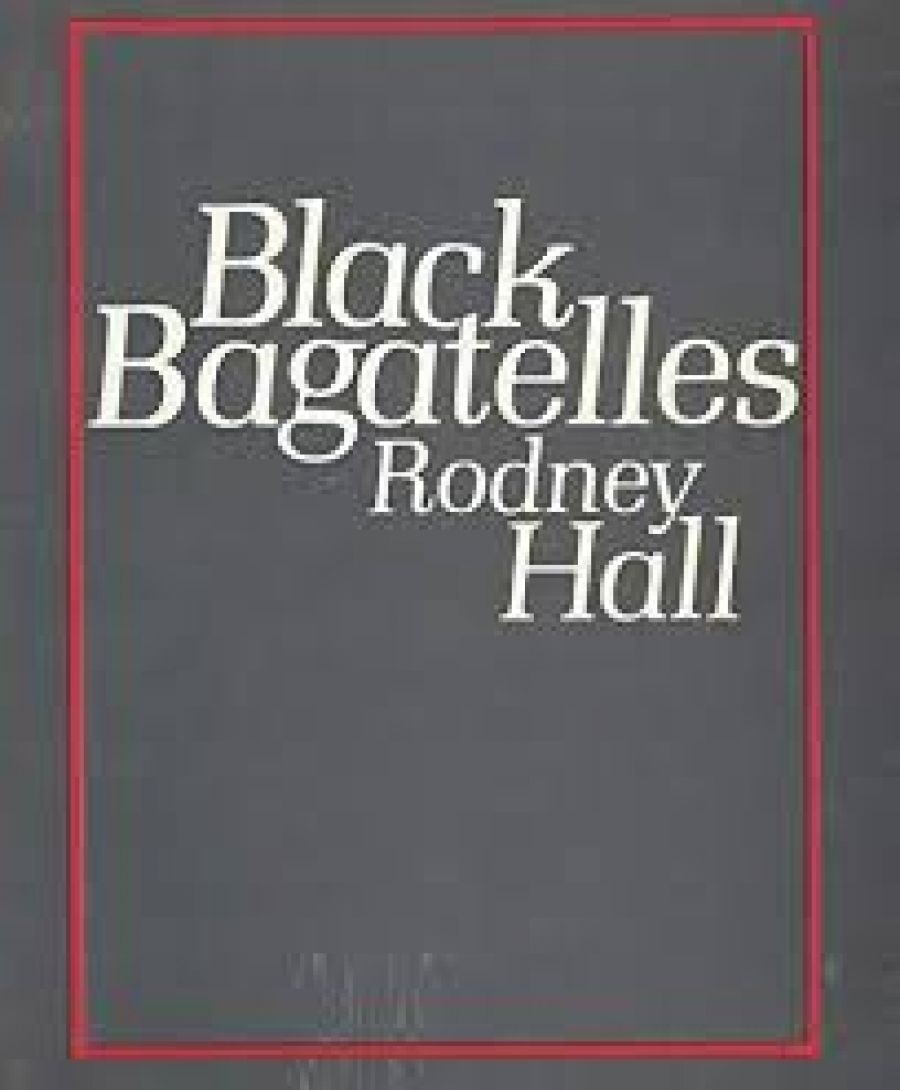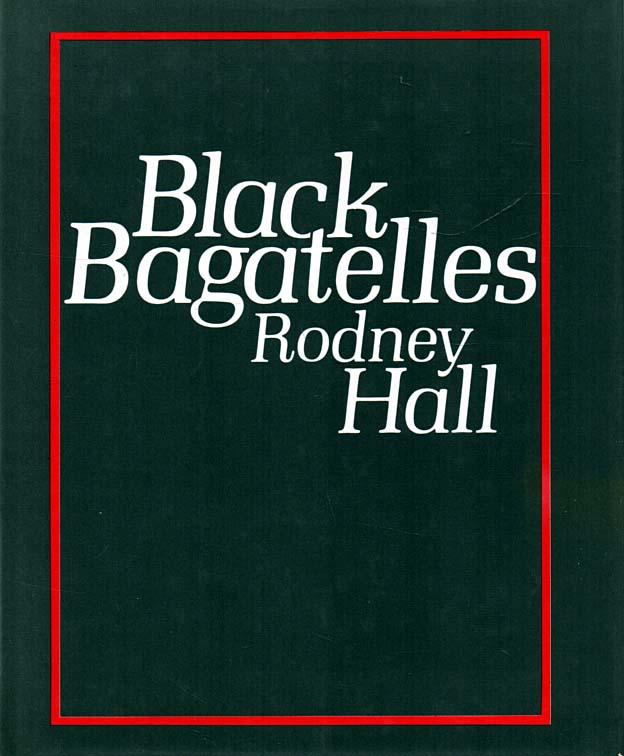
- Free Article: No
- Contents Category: Poetry
- Review Article: Yes
- Article Title: Death and the poet
- Online Only: No
- Custom Highlight Text:
Rodney Hall has always been a professional poet in the sense that he professes and declares – indeed, almost seems to make himself – in his poetry. The poetry seems to become a means of coping with experience; more, it becomes perhaps the central part of the experience. So it is in Black Bagatelles. But here, art and its expectations become less something for living than for dying by. Not that this book marks any great break with what has gone before, any rupture of identity. On the contrary, implicitly or explicitly, death has always been a major presence in his poetry. Its preoccupation with art and artifice represents, amongst other things, an attempt to give himself alms against oblivion. But in these poems the note of doomsday, sounded in the title of his first collection of verse, Penniless Till Doomsday; rings out, not portentously, but wittily, with immediacy and perception. Hall has always been concerned with masks, poses, the dance of experience. Now, the ‘masks compose themselves tableau-still’ and the source is revealed of the ‘desperate rustlings going on behind’. This source then is death, but not death majestical and metaphysical as Donne and the seventeenth century ‘knew him, not moralising and the servant of the mighty God as in the middle ages, but jester and joker, the one who calls the tune to life’s comedy, to
… the hold of
heart
on heart the band
of gristle the bloodtie
just
waiting to be
bled to death by a clever cut
- Book 1 Title: Black Bagatelles
- Book 1 Biblio: University of Queensland Press, 85 pp ,$5.95 hb., $3.50 pb
- Book 1 Cover Small (400 x 600):

- Book 1 Cover (800 x 1200):

… the hold of
heart
on heart the band
of gristle the bloodtie
just
waiting to be
bled to death by a clever cut
These poems show the poet at the top of his form, agile, investive, able to play with forms as with ideas. But this, precisely, is the difficulty. For, granted their professionalism, what are the implications of this kind of poetry not only for the world it expresses but for the poetry which expresses it? Hall points to what is best but also perhaps most dangerous in contemporary poetry, the poet’s ability to imagine himself someone else, so to distance himself from his experience that he is able to play with it. But in these poems at least the result is that only the nerves are left. The experience invades the poet instead of the poetry invading his experience and shaping, even reshaping, the world. This has a numbing effect, evident for example in the poem which begins
When I’m asleep my nerves shoot
Light
and ends in a state of hallucinatory fascination with death, the presence which grows out of this void of self:
my spine responds to air
As a shark’s fin listens in the water
You are not breathing so I know it’s you
The mind has taken over here from the body, so that in general, though admittedly not in these lines, intelligence works not towards but away from that concreteness which is the stuff of poetry and in the direction of abstraction. Aware of the disintegration of life not only within himself but around him – his sense of suburbia is macabre – he attempts to reassemble it by the mind’s shaping force. The structuring of the poems, presented in sections with a gloss to each section, makes evident the attempt at myth-making. But myths refuse to be constructed, they must be lived out, and the note here tends to be evasive rather than committed. If death is to be seen as an image of life; the question of visibility becomes urgent and demands language of sensual immediacy. But Hall’s language works towards deductions about and abstractions from the experience described. There are plenty of ideas, that is, but they are not so much in things as playing about them. Above all, the language expresses self-reservation:
I find I’m
Walking round ‘in someone else’s hat
asking
have I tamed the chaos yet
so that
it may be at last despised (22)
One must respect the inward freedom here, but it is doubtful whether its price ought to be contempt for the world. Defensiveness impairs the negative capability which would allow through the underlying mysteries, doubts and uncertainties which form the subject matter of these poems. Instead of attempting to breakthrough, the language puts a glaze upon them, speaking with the voice of death, in effect, rather than of life.
Admittedly, Hall is quite aware of what he is doing.
You see (he tells death)
My mouth has mastered all your genteel
graces of vocabulary
But death, I think, was never a major poet. His approach, it is true may cause a hectic contraction of the muscles as here. But then those muscles dance away from rather than towards life, though the dance is an elegant, even compelling one. It was Wallace Stevens who said that the greatest poverty is not to live with a decisive physical world. Black Bagatelles is about this poverty – quite consciously so – and this makes it a perceptive as well as a stylish look. What it says about the possibilities for poetry in a culture in which this poverty is growing is another matter.


Comments powered by CComment